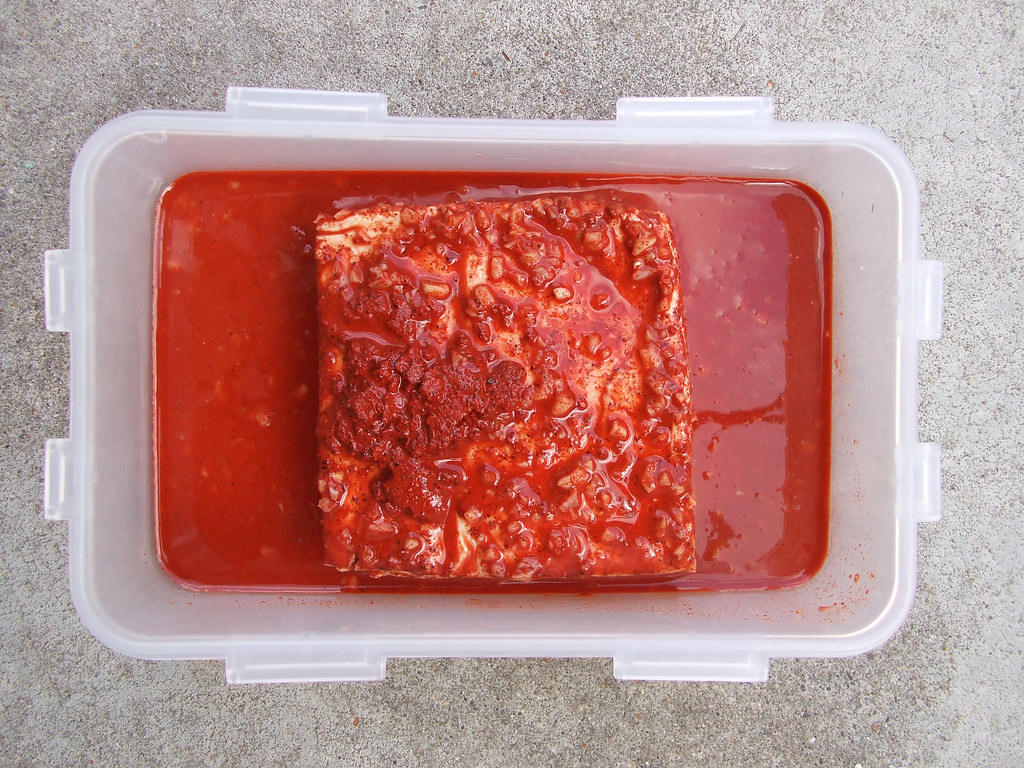Before cooking, marinades are a great method to add flavour and tenderness to meat, fish, or vegetables. But if you’ve ever prepared a sizable amount of marinade, you might have questioned whether it can lose its potency over time. This is a typical worry, particularly if you’re unsure of how long the marinade has been lying in the cupboard or refrigerator.
This blog post will examine whether marinades can spoil, what symptoms to watch for, and how to store them safely and effectively to maintain optimum freshness. Making tasty and wholesome meals requires a basic grasp of marinade storage and safety, regardless of your level of cooking experience. So let’s investigate and learn if marinade spoils.
Yes, marinade can spoil if improperly stored or if left out for too long. A marinade can be somewhat preserved by the ingredients, such as vinegar, citrous juice, and spices. They are only able to do this for a brief period of time.
The components used, the storage conditions, and the amount of time the marinade has been kept all affect how long it will keep. In general, if a marinade contains acidic elements like vinegar or citrous juice, it can keep for up to 5 days in the refrigerator. It might only survive for 1-2 days if it contains dairy items like yoghurt or sour cream.
Your marinade must be carefully stored to maintain optimal freshness and security. Always keep your marinade in the refrigerator in an airtight container, and use it by the suggested date.
In conclusion, marinades can enhance the flavour of your food, but it’s crucial to handle and store them correctly to prevent spoiling and foodborne illness. Follow these guidelines to guarantee that your marinade is always secure and suitable for use.

Can I freeze marinades to extend their shelf life?
To increase the shelf life of marinades, you can freeze them. If you have extra marinade that you don’t want to waste, freezing it is an excellent way to save it for later use. Frozen marinades retain their quality and flavour for up to three months when kept in proper storage.
Transferring a marinade to a freezer-safe container or resealable freezer bag will allow you to freeze it. The marinade’s name and expiration date should be written on the container’s label. To avoid freezer burn, let out as much air from the container or bag as you can before sealing it.
Simply put the marinade in the refrigerator overnight to thaw it out before using it. The texture and viscosity of some marinade ingredients, including fresh herbs or garlic, may change as a result of freezing and thawing. The marinade’s flavour should yet endure.
Remember that a marinade’s shelf life cannot be endlessly extended by freezing and thawing. To prevent deterioration or foodborne illness, the marinade should be used as soon as it has been defrosted. Any marinade that has thawed and wasn’t utilised within the suggested time range should be thrown away.

Does the type of meat or vegetable being marinated affect the shelf life of the marinade?
The shelf life of the marinade can vary depending on the type of meat or vegetable being marinated. How long a marinade can be properly stored depends on the acidity of the marinade and the type of ingredient being marinated.
For instance, if you’re marinating a more delicate protein like fish or shrimp, the marinade may cause the meat or shellfish to break down more quickly and spoil more quickly. Similar to this, the marinade may not last as long if you are marinating a vegetable with a high water content, such as tomatoes or cucumbers.
However, if you are marinating a tougher cut of meat, such as beef or pork, the marinade may actually aid to tenderise the meat and lengthen its shelf life. This is due to the fact that the acidity of the marinade might aid in reducing the growth of germs that may result in spoiling.
It’s also critical to keep in mind that the shelf life of the marinade may be impacted by specific ingredients. For instance, marinades with dairy ingredients like yoghurt or sour cream may go bad sooner than marinades without them.

How can I tell if a marinade has gone bad?
There are various indicators that a marinade has lost its potency. Observe the warning indicators listed below:
- One of the most glaring indications that a marinade has gone bad is a nasty or unpleasant odour. It is better to throw away the marinade if it smells rotten, sour, or otherwise unpleasant.
- Mould: If you see any mould growing on the marinade’s surface, that means the marinade has gone bad and shouldn’t be utilised.
- Changes in Colour or Texture: If the marinade has changed in colour or consistency, it may have spoiled. For instance, a marinade that was formerly clear could no longer be safe to use if it has turned murky or separated.
- Bitter or Sour Taste: If the marinade tastes bitter or sour, it has begun to spoil and should not be eaten.
- The marinade should not be used if it has passed its expiration date since it may have gone bad.
It is preferable to err on the side of caution and discard the marinade if you see any of these symptoms rather than run the risk of contracting a foodborne illness. It’s crucial to properly preserve marinade and utilise it within the suggested time limit to avoid having to throw away any leftovers.
Relevant Articles
What Happens When You Put An IPhone In The Freezer?
How To Freeze Something Faster?

Comments are closed